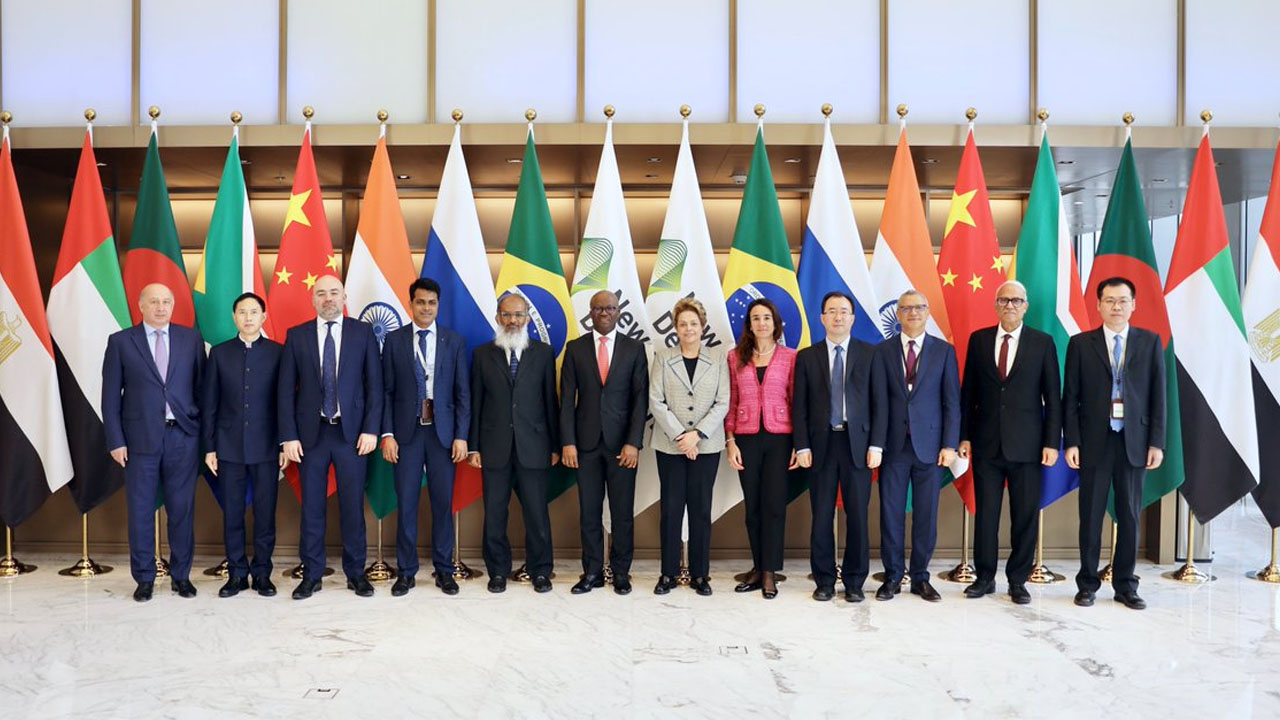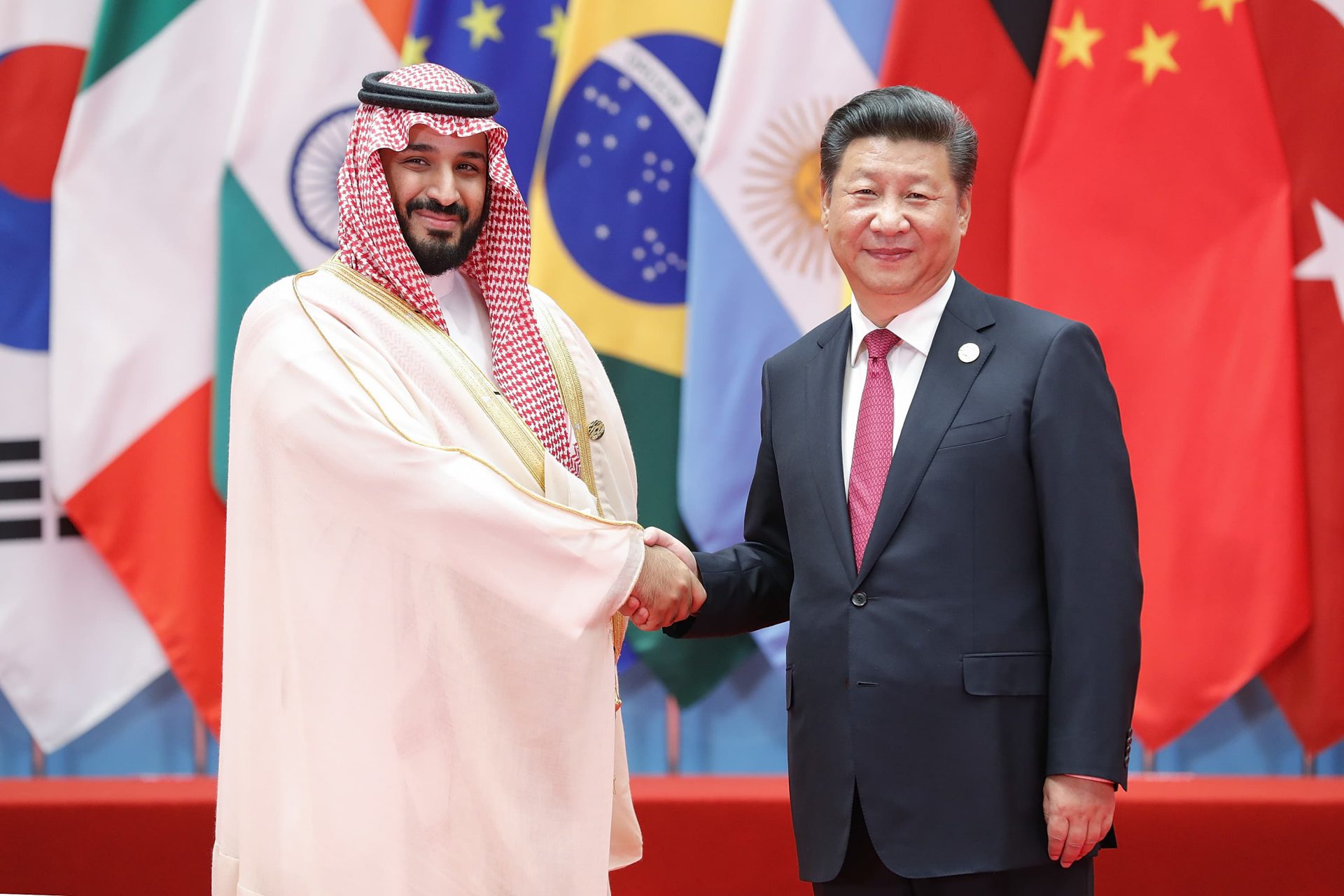Wow, this thread is full of garbage and misinformation.
Many of the leaders are participating via remote access, as is Putin. Of course, the west, and a standing INTERPOL warrant out for him, so going in person, would be a risk for the leader of Russia.
His not going, has nothing to do with political isolation though.
Nor are the economies of BRICS necessarily doing poorly. IN fact, many nations, including France, are applying for inclusion, and the Anglo-American, forced uni-polar world order, would seem to be dissolving?
IMO? Folks should expand their sources of news, and not limit themselves. The future is coming up quick, and one might not want to be taken by surprise. In the modern era, there should be no excuse for it.
22 Countries to Attend BRICS Summit
22 countries have been confirmed to attend the August BRICS summit in Johannesburg, could they join the bloc?

watcher.guru
France Says Macron Hopes To Attend BRICS Summit
French President Emmanuel Macron hopes to attend a BRICS summit scheduled for August, his foreign minister said Tuesday, a meeting to which Russian leader Vladimir Putin has been invited.

www.barrons.com
BRICS Confident in New Expansion Criteria Ahead of 2023 Summit
BRICS Ambassadors are reportedly confident in new expansion criteria set to be proposed to leaders at the 2023 summit.

watcher.guru
BRICS and Nukes and LNG – the energy transition few are expecting
July 11, 2023
Sometimes I hear people going on about how rapidly the world is changing. “The pace is unbelievable, who can keep up…” Most times I roll my eyes a fair bit, a good 80 degrees I’d say. Obviously things are changing, but a new app that helps order pizza or a tool that writes an essay

boereport.com
". . . Here’s a quick rundown of some of the bigger components that are largely met with unease, hostility, or shouting, and yet they are the future.
The first is the global rise of LNG as a fuel of choice for the coming decades. Country after country is signing LNG supply deals for 20 years or even more, contracts which are supporting the construction of infrastructure at either end – terminals to load LNG onto ships, and receiving terminals to distribute it to energy-starved countries. The US is expected to go from exporting zero LNG a decade ago towards exports of up to 30 billion cubic feet per day by the end of the decade, and the list of consuming nations is long and desperate to get what they can.
Emissions-wise, this makes total sense, because for much of the developing world the choice is coal, LNG, or nothing. Offers of endless solar fields are not amusing when the population wants refrigerators and air conditioners, at a minimum. But these developing countries must face the juggernaut of policy emanating from the west that does not want them to develop hydrocarbons of any sort. What to do?
And that brings us to BRICS, one of the big developing geopolitical entities that is being forced into existence.
Ten or fifteen years ago, a group of countries – Brazil, Russia, India China, and South Africa – formed what should have been BRICSA but for whatever reason they settled on BRICS. The original group took shape only as a method of attracting investment by highlighting opportunities, but over time it morphed into a more concrete organization, with their governments meeting regularly to develop policies that would benefit all members.
All well and good, however one would think – particularly here in the west – that the BRICS organization would be somewhat on its back heels and hiding behind a shrub with Russia being one of the key members. Russia’s invasion of Ukraine has been the biggest, worst setback to global peace in a long time.
It was with some surprise then that stories appeared in the news earlier this year about how multiple countries were looking to join BRICS. Bloomberg ran a story in April 2023 outlining 19 countries that submitted bids for membership.
In a startling sign of some of that change people talk about, the number of BRICS applicants reading for the hazing rituals has grown to a shocking 41 countries. The original BRICS group had about 3.2 billion citizens; the new applicants will add another 1.7 billion bringing the total BRICS population – if all join – to almost 5 billion people.
Compare this total to ‘the west’s’ population; if one includes philosophical teammates like Japan and Australia in the count along with western Europe, the US and Canada gives a population of under 1 billion.
The rush to join BRICS is from everywhere. South America, Africa, the Middle East, Asia… even Mexico. The group is holding a summit in August with plans to potentially introduce a new currency.
This group is willing to join with the west’s pariah, Russia, because it sees a path towards defining its own future, and you can bet that energy is a large part of that. Why should 5 billion people take orders from the west with regards to what is and what is not allowable in terms of energy development?
Western stances on energy are absolutely bizarre, and from the other side of the developmental wall, must be at best perplexing and at most infuriating. Activists groups from Europe and the US push to prevent development of the East African Oil Pipeline, while Canada builds one, President Biden urges American producers to drill more, and Europeans build LNG terminals and burn coal. . . ."







